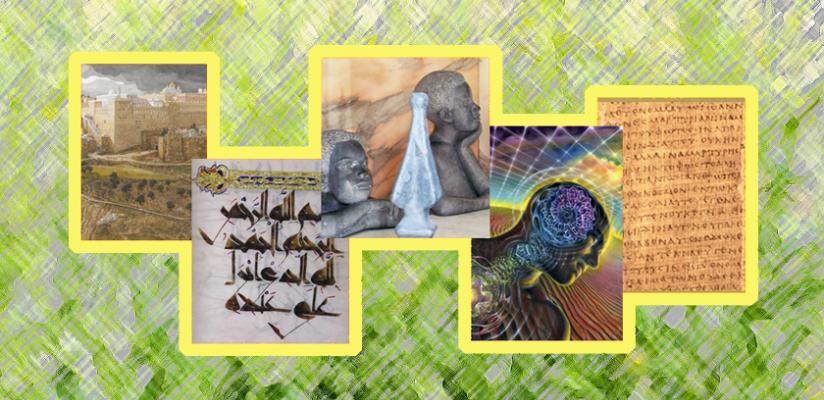Religious Studies will be offering 5 online courses for Fall 2017 along with 19 other courses covering subjects as varied as Gospel Literature and the Formation of Christianity – Faith Doubt and God – Exploring Religion – Intro to Islam – Religion and the Arts – Intro to Judaism – Intro to African American Religions.
Religious Studies online courses are accessible to students on the Columbia campus as well as the branch campuses around the state.
Katja Vehlow will be teaching a new online course, RELG 230-J10 Intro to Judaism. The course will examine a number of ideas that have shaped the Jewish experience such as the Oral Torah, the emphasis on prayer and social justice, sanctification of daily life, but also the impact of the Warsaw Ghetto uprising, of feminism and gay and lesbian rights.
Elon Goldstein is putting up two online courses: RELG 101–J10 Exploring Religions and RELG 361/PSYC 320 Psychology of Religion. – The former is an introduction to the academic and comparative study of religion; it investigates extraordinary religious experiences which occur in some form throughout all religious traditions, past and present. – The latter proceeds from a perspective generated by new understandings in the fields of psychology and spirituality, without being tied to any single religious tradition or framework.
On-campus Religious Studies classes at the Columbia campus also cover a wide range of topics, including the following.
Erin Roberts is offering RELG 311 Gospel Literature and the Formation of Christianity as well as RELG 205 Morality, Ethics, and Religion. – The first addresses the production and use of literature within the religions of the ancient Mediterranean, with particular attention to gospel texts of first century Christianity. – The second offers a critical approach to the convergence of religion, the development of values, ethics, and social responsibility.
James Cutsinger will be teaching RELG 412 Faith, Doubt, and God. : Is God the greatest of facts or the greatest of fantasies? Discussion is open, honest, and patient, albeit with rigorous intellectual engagement. Atheists, agnostics, and the merely diffident are warmly invited to join in this exchange, as are religious believers of various degrees of conviction, whether Christian or otherwise.
Stephanie Mitchem is doing her RELG 207/ AFAM 207 Intro to African-American Religions. This course looks at the unique religious experiences and understandings of African Americans born of a combination of historical, cultural, social, and political realities; explore twin perspectives of 1) historical, cultural, and theological dimensions and 2) cultural expressions, particularly music and art.
Noah Gardiner is teaching three courses in the fall: RELG 101 Exploring Religions, RELG 250 Intro to Islam, and RELG 358
The Qur’an and Hadith. – Exploring Religions follows a thematic focus on “the Book” in various religious traditions with particular attention to ancient Egyptian religion, Islam, Hinduism, and The Church of Jesus Christ of Latter-day Saints (Mormonism). – Intro to Islam examines major aspects of Islam as a religious and cultural tradition, from historical beginnings to modern day, various sectarian varieties, and from the Middle East to the United States.. – The Qur’an and Hadith is a detailed introduction to the academic study of the main scriptural sources in Islam: the Qur’an and the Prophetic Hadith (sayings and anecdotes ascribed to the Prophet Muhammad); origins of the sacred texts; relationship to other Abrahamic scriptures; variations of different Islamic and non-Muslim points of view; their central importance in Islamic law, theology, and culture.
John Mandsager will offer RELG 381/HIST 383 Jewish History I: Late Antiquity to 1500 and also RELG 270 Religion and the Arts. – RELG 381 surveys Jewish history from the Second Temple Period to 1500, exploring religious, cultural, social, and political conditions that shaped Jewish experience living under western Christendom and Islam. – His RELG 270 will combine art history with religious studies, showing the ways in which various media of creative artistic representations are forms of interpretation, imagining biblical text, and Jewish, Christian, and Muslim traditions in new forms.
Syllabi of these courses with further details of each and a full list of Religious Studies courses being offered for Fall 2017, can be found on:
